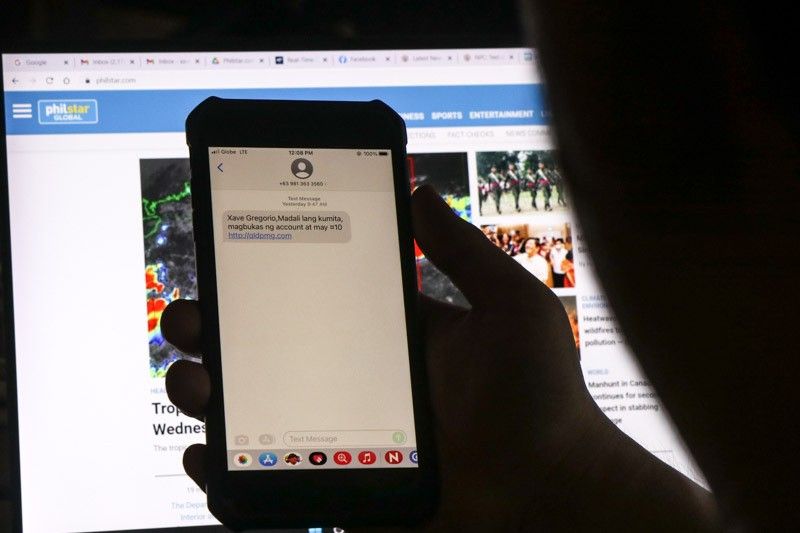Amid text scams, Globe to block SMS with clickable links

MANILA, Philippines — Globe Telecom Inc. announced it would start blocking text messages with clickable links as part of a campaign to curb SMS scams.
In a statement on Friday, the Ayala-led telco giant said this would cover all text messages from prepaid and postpaid numbers that contain website addresses. Likewise, this would cover the delivery of “person-to-person” text messages from all telco networks that contain clickable links.
"Before implementing this measure, what we were doing was blocking access to malicious links in text messages to help protect customers. This time around, we're blocking the actual message,” Anton Bonifacio, company chief information security officer, said.
While the move could be perceived as anything but extreme, some experts agreed with the telco giant’s move. Dr. William Yu, a network security expert, is one of them.
“It is a hammer. It is quite crude but given the severity of the problem I believe it is merited,” he said when sought for comment.
Terry Ridon, convenor at Infrawatch PH, an infrastructure-oriented think tank, said Globe’s actions were “welcome,” calling on other telcos to follow suit.
“This will have little impact on legitimate businesses using messaging services for promotions or customer service, as other messaging platforms are more effective and more secure than SMS,” Ridon said.
Consumers these days face an onslaught of spam text messages, to which legislators and government agencies responded by launching probes into these activities. As to how the national government will react remains unknown up till now.
Invasion of privacy?
For Lito Averia, a cybersecurity expert, Globe’s actions could mean that they will start scanning all text messages that pass through their system.
"Will Globe now start scanning all messages that go through their system for malicious links?” he said. “In my opinion, that's intrusion of private communication, protected by the Constitution no less."
According to Globe, they have spent P1.1 billion in capital expenditures to improve their system’s capabilities to detect and block scam and spam messages.
- Latest
- Trending






























